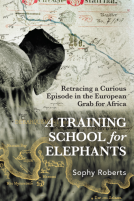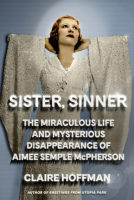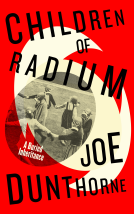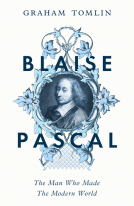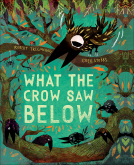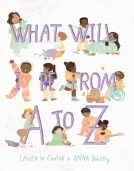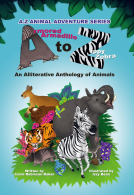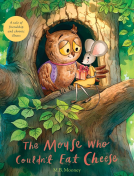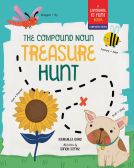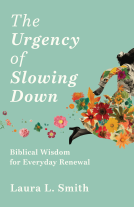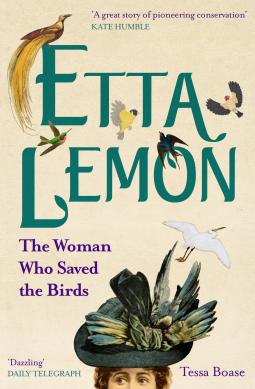
Etta Lemon
The Woman Who Saved the Birds
by Tessa Boase
This title was previously available on NetGalley and is now archived.
Send NetGalley books directly to your Kindle or Kindle app
1
To read on a Kindle or Kindle app, please add kindle@netgalley.com as an approved email address to receive files in your Amazon account. Click here for step-by-step instructions.
2
Also find your Kindle email address within your Amazon account, and enter it here.
Pub Date Jul 06 2021 | Archive Date Jul 15 2021
Talking about this book? Use #EttaLemon #NetGalley. More hashtag tips!
Description
A heroine for our times, Etta Lemon campaigned for fifty years against the worldwide slaughter of birds for extravagantly feathered hats. Her legacy is the RSPB, grown from an all-female pressure group of 1889 with the splendidly simple pledge: Wear No Feathers.
Etta’s long battle against ‘murderous millinery’ triumphed with the Plumage Act of 1921 – but her legacy has been eclipsed by the more glamorous campaign for the vote, led by the elegantly plumed Emmeline Pankhurst.
This gripping narrative explores two formidable heroines and their rival, overlapping campaigns. Moving from the feather workers’ slums to high society, from the first female political rally to the rise of the eco-feminist, it restores Etta Lemon to her rightful place in history – the extraordinary woman who saved the birds.
ETTA LEMON was originally published in hardback in 2018 under the title of MRS PANKHURST'S PURPLE FEATHER.
'A great story of pioneering conservation.'
KATE HUMBLE
‘Quite brilliant. Meticulous and perceptive. A triumph of a book.’
CHARLIE ELDER
‘Shocking and entertaining. The surprising story of the campaigning women who changed Britain.”
VIRGINIA NICHOLSON
‘A fascinating and moving story, vividly told.’
JOHN CAREY
‘A fascinating clash of two causes: rights for women and rights for birds to fly free not adorn suffragettes’ hats. An illuminating story, provocative, well-researched and brilliantly told.’
DIANA SOUHAMI
Available Editions
| EDITION | Other Format |
| ISBN | 9780711263383 |
| PRICE | $16.00 (USD) |
| PAGES | 320 |
Featured Reviews
 John L, Reviewer
John L, Reviewer
I actually clicked on this as a free review copy in error, to be truthful, yet seldom did I regret it at all. I thought it was a children's book, along the lines of those others I have seen recently ("She Heard the Birds" – https://www.goodreads.com/review/show/4038785734 and "Counting Birds" – https://www.goodreads.com/review/show/2564131917), telling of pioneering bird enthusiasts killing off the trade in feathers for fashion. Instead it's an adult non-fiction book, and one that's much more about society and hats than it is about birds. While those other books concentrated on American subjects, this British volume looks at the woman who helped inspire the RSPB bird and conservation charity, who was railing against the idea of killing birds and sticking their plumage in bonnets and headdresses. Oh, and she was campaigning for birds on similar platforms to the chief suffragettes, who were all too happy to flounce around under a forest of feathers, as they needed to look dainty and feminine to get anywhere – the brash, couture-less harridan look would not do.
So this almost acts as a joint biography of Emmeline Pankhurst (wants everything for women, as long as she can be be-feathered, thus managing to keep the girls involved in the feather trade stuck in the poverty that is all they've known), and the most unfortunately-named Etta Lemon (wants everything for birds, and hang those women demanding the vote and a living wage and everything else for nicking her column inches). It's also a social history, looking at the background of the workers in the feather trade, the evangelical ideas that helped Lemon become such a pioneer in her field, and more. This was, perhaps surprisingly, the first era of the campaigning style we know of today, although they were making beginner's mistakes – a lead anti-vivisectionist sporting a whole bird of paradise and an ivory-handled umbrella as her decoration of choice.
I'm forced to consider this book as a complete layman here – I've hardly ever worn a formal hat, and certainly not one with a gutted songbird stuck on it. I would never have thought to find myself reading about the social history of millinery decoration, and as I say those prior reads of mine never encouraged me to think the RSPB had been born from similar reasons – and certainly not that the chief worker of the SPB before its Royal endowment was a virulent anti-suffragist. So what this layman can report is that this is surprisingly engaging, and would appear to be so for many an audience member. You don't have to have an academic hat on (feather-free, of course) to be coming here for study of early environmentalism, social protests' impact on couture or any other reason an expert would need to peruse this. It is, ultimately, a bit clumsily-named, much like its title subject, for this is about a lot more than someone who consumed a citrus fruit, and perhaps too forensic, "must-make-the-definitive-book-and-therefore-use-every-minute-detail" for its own good, but it still can go down as a surprising success.
To quote, "ETTA LEMON was originally published in hardback in 2018 under the title of MRS PANKHURST'S PURPLE FEATHER." That was a slightly better title, but only just.
 Mandy J, Reviewer
Mandy J, Reviewer
What a fascinating book. I’d never heard of Etta Lemon before, and I hazard a guess that not many others have either. She seems to have been written out of the historical record. (An all too familiar fate for women, sadly). And yet Emma Lemon played such a pivotal role in founding and developing the RSPB, and we’ve all heard of that, particularly in the UK. So why don’t we know more about her? Thankfully we now do, and what an excellent biography this is. The author expertly weaves together the stories of Etta Lemon and Emmeline Pankhurst (and we’ve all heard of her) as they were active at the same time, although their aims were different. Etta cared about birds, in particular the ones that had been slaughtered for Mrs Pankhurst's hats. And that is indeed a hard-to-stomach aspect of the book, the description of the appalling destruction of so many birds purely to adorn women's hats. Later Etta Lemon actually became an anti-suffrage campaigner – and that in itself is a compelling tale. All in all, there is so much to enjoy in this meticulously researched, well –written and thoroughly enjoyable and illuminating biography. Highly recommended.
Margaretta (Etta) Louisa Lemon MBE (1860-1953) of Reigate was a co-founder of the all-female organisation that later became the Royal Society for the Protection of Birds (RSPB). Renowned for her public speaking, she lobbied for legislation to protect wild birds against the fashion for wearing feathered hats which she claimed was ‘murderous millinery’. She was a member of the Reigate Board of Guardians and the Board of Managers for Earlswood Asylum but a staunch anti suffragist, heading a branch of the East Surrey Anti-Suffrage League. When Mrs Pankhurst stormed the House of Commons with her crack squad of militant suffragettes in 1908, she wore on her hat a voluptuous purple feather. This is the intriguing story behind that feather.
Twelve years before the suffragette movement began dominating headlines, a very different women’s campaign captured the public imagination. Its aim was radical: to stamp out the fashion for feathers in hats. Leading the fight was a character just as heroic as Emmeline Pankhurst, but with opposite beliefs. Her name was Etta Lemon, and she was anti-fashion, anti-feminist – and anti-suffrage. Mrs Lemon has been forgotten by history, but her mighty society lives on. Few, today, are aware that Britain’s biggest conservation charity, the RSPB, was born through the determined efforts of a handful of women, led by the indomitable Mrs Lemon. While the suffragettes were slashing paintings and smashing shop windows, Etta Lemon and her local secretaries were challenging ‘murderous millinery’ all the way up to Parliament.
This gripping narrative explores two singular heroines – one lionised, the other forgotten – and their rival, overlapping campaigns. Moving from the feather workers’ slums to the highest courtly circles, from the first female political rally to the first forcible feeding, Mrs Pankhurst’s Purple Feather is a unique journey through a society in transformation. This is a highly original story of women stepping into the public sphere, agitating for change – and finally finding a voice. A fascinating piece of history rich in intricacies and colourful, idiosyncratic characters and a tale not given the exposure it deserved over the last century.
 Lisa S, Reviewer
Lisa S, Reviewer
This book takes the reader right into the world of the high life of aristocratic women and the tough enslavement of the girls working for milliners. Etta Lemon, privately educated and intelligent, grew a society to save the birds, cruelly slain for beautiful women's hats, and was an excellent public speaker. She worked tirelessly to make women aware of this terrible trade - some women even wore dead birds on their hats. Many of the bird species were in danger of extinction. Yet she was against women having the vote.
Some of the suffragettes were also against this 'murderous millinery', but many felt that they had to use fashion, including feathers, to enhance their power. Tessa Boase compares Etta with Emmeline Pankhurst in an interesting way.
This book is very enjoyable, and made me want to find out more about such eccentric characters as the Duchess of Portland, and learn more about Arthur Mattingley, who photographed Australian egrets for the Society.
I received this free ebook from NetGalley in return for an honest review.
EDITION Other Format
ISBN 9780711263383
PRICE $16.00 (USD)
